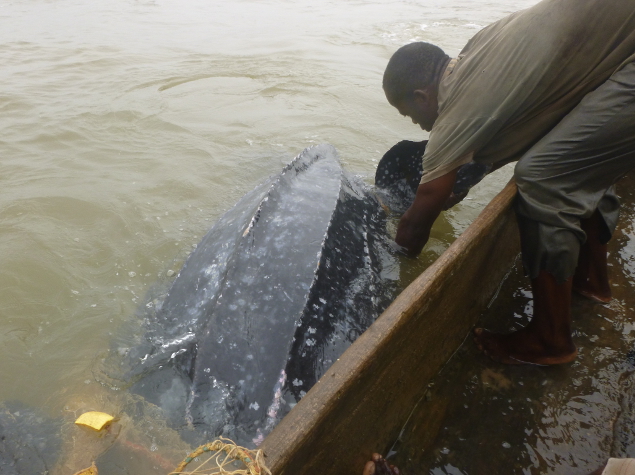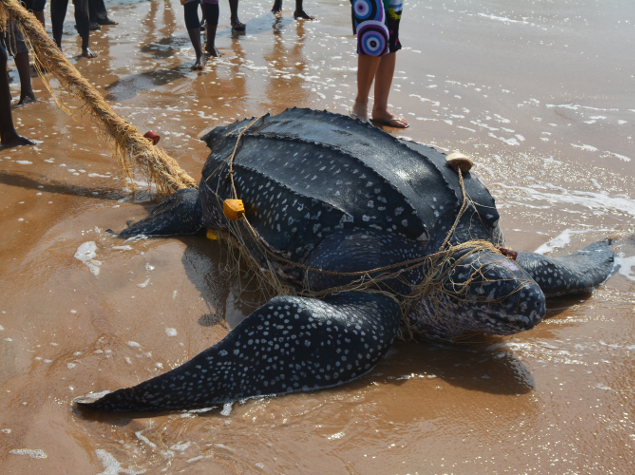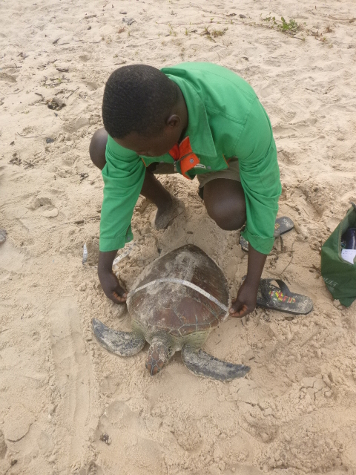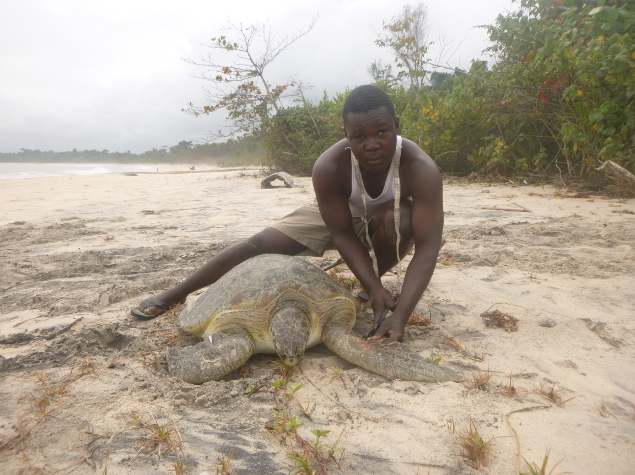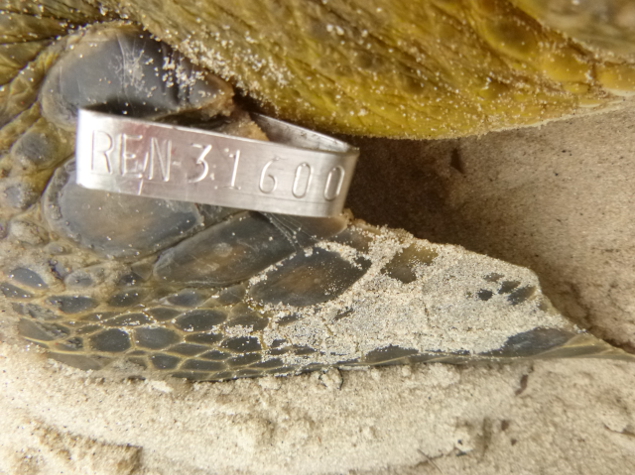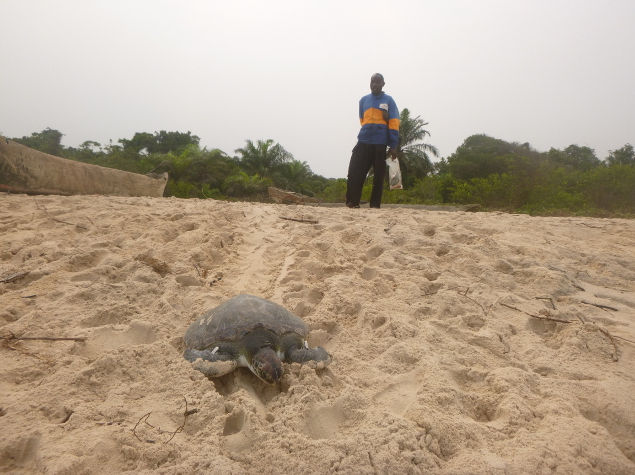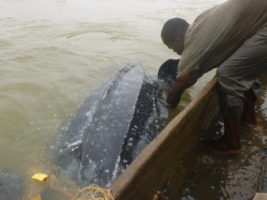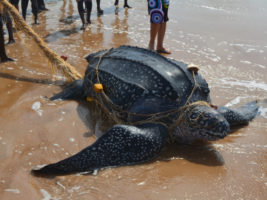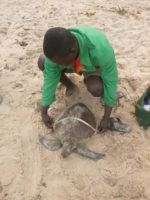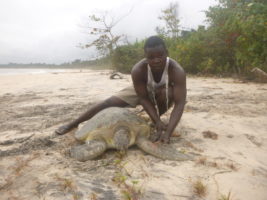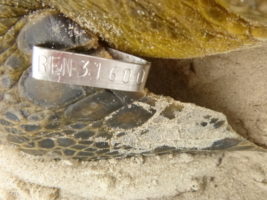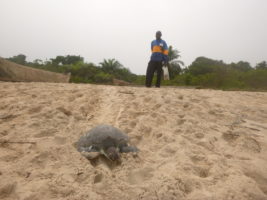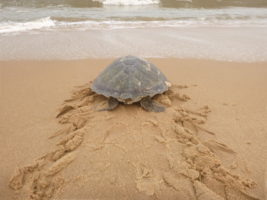Monitoring and release of turtles accidentally caught in fishing nets at a site of ecological interest
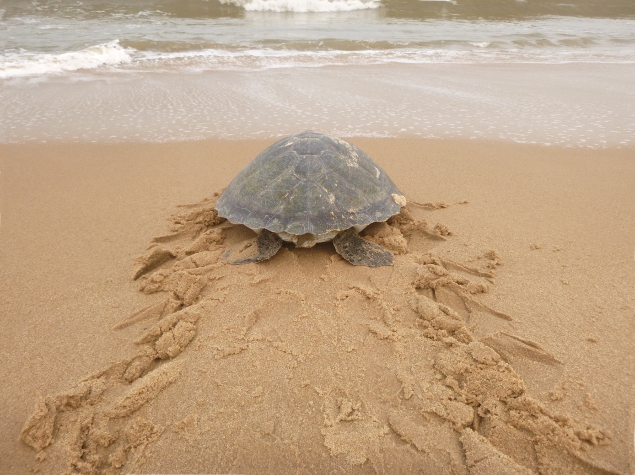
The Republic of the Congo is home to five of the seven species of sea turtle: green, olive ridley, leatherback, hawksbill and loggerhead, all classified as endangered on the IUCN Red List. They face various natural and anthropogenic threats, including by-catch (accidental capture in traditional fishing nets). During the 2018-2019 egg-laying season, Renatura Congo found evidence of many cases of by-catch in the Conkouati-Douli National Park, mainly at Kondi.
The main goal of the project is to contribute to the protection of sea turtle species at this site.
First of all, a partnership will be formed with local fishers in an attempt to reduce the incidence of by-catch. Two members of the release team will visit the coastal fishers on a daily basis and check whether any sea turtles have been caught in their nets. If a turtle has been caught accidentally, it will be released after examination, data collection and tagging. Renatura also undertakes to give fishers spools of twine to repair any nets damaged by the capture and release of turtles. Without this clearing system, turtles become commercial catch. These daily visits by release team members will also help raise awareness among the region’s coastal communities.
At the same time, release of the turtles will enable a large set of scientific data to be collected. Analysis of the information gathered will contribute to a better understanding of the biology of the region’s turtle subpopulations (range, size, migration routes, state of health, etc.). The maps and reports that emerge from these findings will be passed on to the local and national authorities and should serve as valuable decision-making tools. A scientific publication will also be produced. These documents will help the association in subsequent advocacy work, aiming to ensure that the findings are fully taken into account, not only in official development policies but also for better protection of these sea turtles and their habitat.
FINAL REPORT SUMMARY (August 2020):
Over the funding period, 76 turtles which have been captured alive were released. The NGO also gave to fishermen the necessary material to repair fishing net damages (spool, net, rope, sinker, …). Biological data was also collected and released turtles were tagged. 3 agents were also present on beaches to ensure the laying follow-up from October 2019 to February 2020. The value of the Kondi bay for marine turtles has been highlighted by the publication of a scientific paper in the African Sea Turtles Newsletter.
Now, studies should be deepened via collection of genetical and satellite data which will enable to better understand the migratory movements. The bio-ecology of the zone will also have to be studied.

